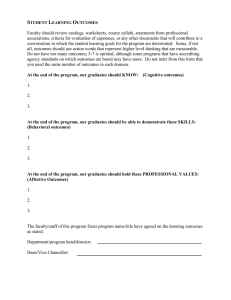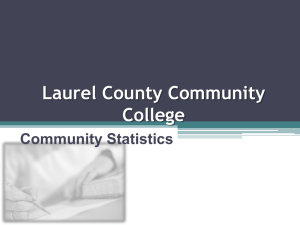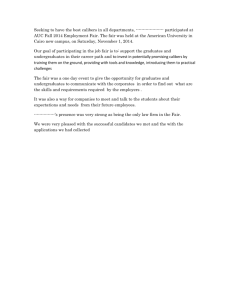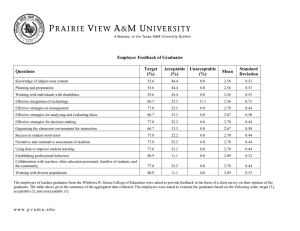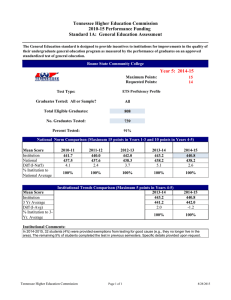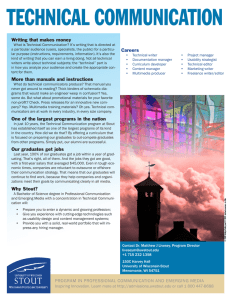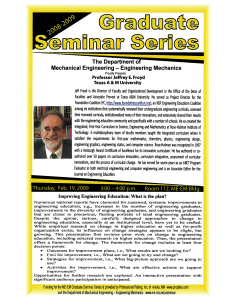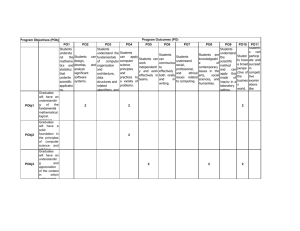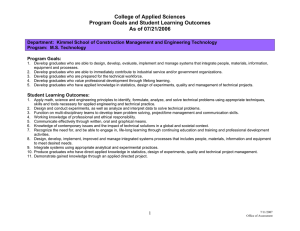Communication Skills Outcomes for UD Undergraduates
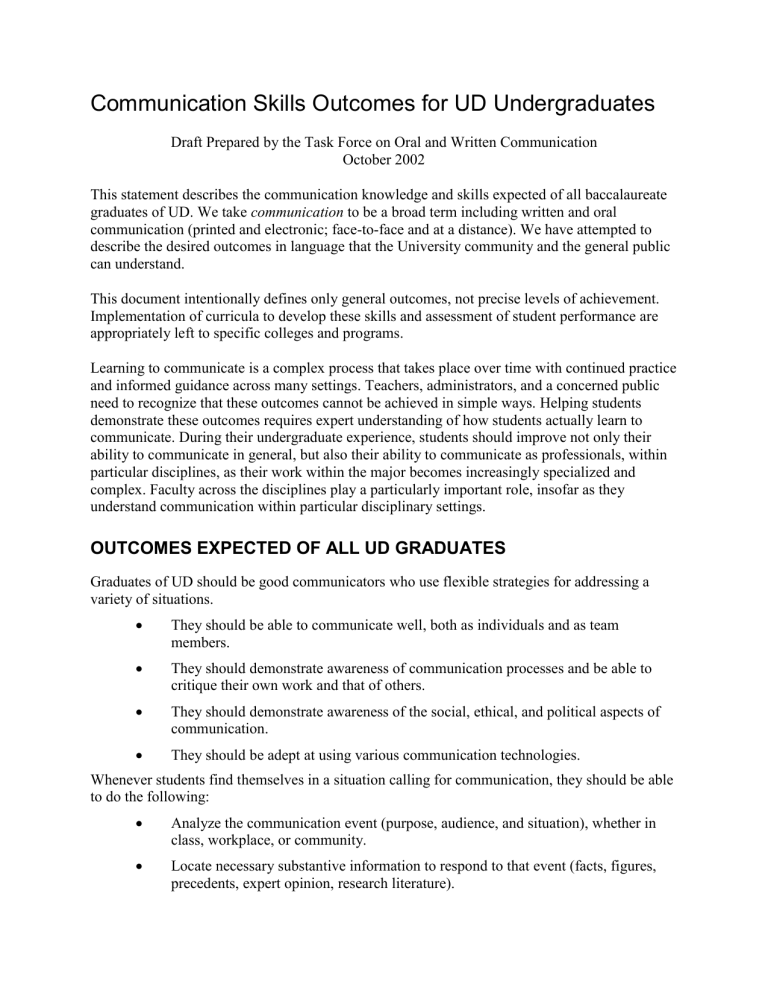
Communication Skills Outcomes for UD Undergraduates
Draft Prepared by the Task Force on Oral and Written Communication
October 2002
This statement describes the communication knowledge and skills expected of all baccalaureate graduates of UD. We take communication to be a broad term including written and oral communication (printed and electronic; face-to-face and at a distance). We have attempted to describe the desired outcomes in language that the University community and the general public can understand.
This document intentionally defines only general outcomes, not precise levels of achievement.
Implementation of curricula to develop these skills and assessment of student performance are appropriately left to specific colleges and programs.
Learning to communicate is a complex process that takes place over time with continued practice and informed guidance across many settings. Teachers, administrators, and a concerned public need to recognize that these outcomes cannot be achieved in simple ways. Helping students demonstrate these outcomes requires expert understanding of how students actually learn to communicate. During their undergraduate experience, students should improve not only their ability to communicate in general, but also their ability to communicate as professionals, within particular disciplines, as their work within the major becomes increasingly specialized and complex. Faculty across the disciplines play a particularly important role, insofar as they understand communication within particular disciplinary settings.
OUTCOMES EXPECTED OF ALL UD GRADUATES
Graduates of UD should be good communicators who use flexible strategies for addressing a variety of situations.
They should be able to communicate well, both as individuals and as team members.
They should demonstrate awareness of communication processes and be able to critique their own work and that of others.
They should demonstrate awareness of the social, ethical, and political aspects of communication.
They should be adept at using various communication technologies.
Whenever students find themselves in a situation calling for communication, they should be able to do the following:
Analyze the communication event (purpose, audience, and situation), whether in class, workplace, or community.
Locate necessary substantive information to respond to that event (facts, figures, precedents, expert opinion, research literature).
WPA Outcomes Statement for First-Year Composition Page 2
Organize and document information in the manner most suited to the communication situation.
Communicate information in a manner appropriate to the situation and audience.
Modify a communication strategy based on audience feedback obtained during or after the communicative event.
